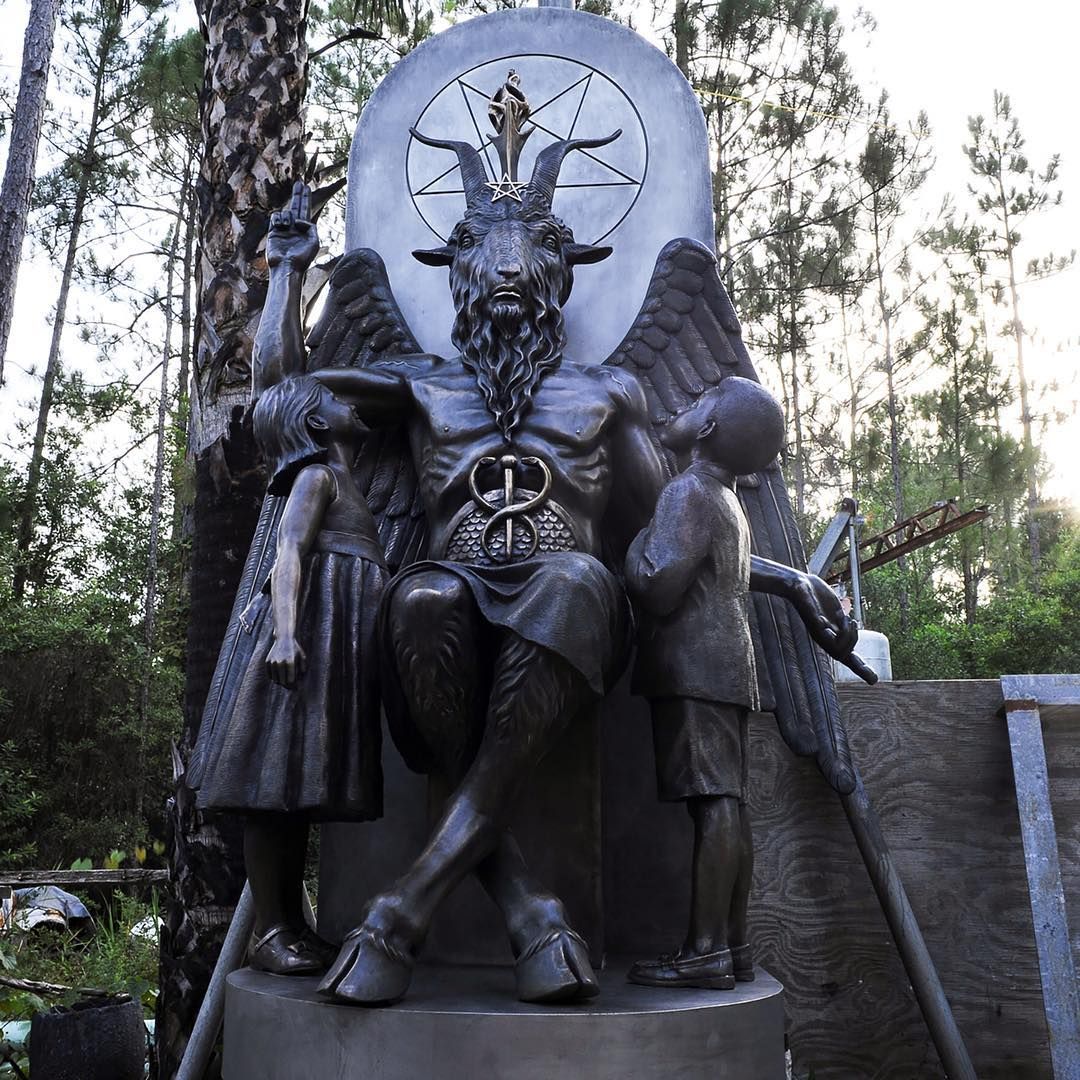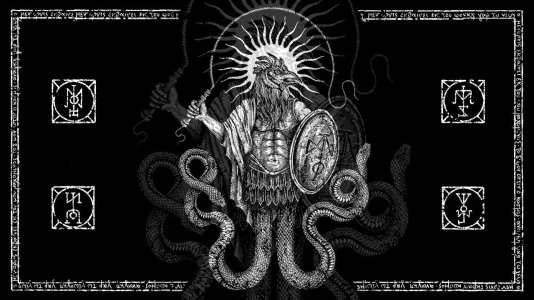- Mar 5, 2024
- 2,117
- 1,095
Before Passing Judgment, Look Yourself Deeply In "The Mirror," Part 1

Many try to justify their sins by quoting the verse that says, "Judge not, lest you be judged," which leaves some wondering if it is wrong to condemn sin? The answer, or course, is that it is not. In fact, scripture teaches quite clearly that it is wrong to give sin a pass. The teaching was simply not to pass judgment on the individual in spite of their sins, but be merciful and leave judgment in the hands of God. The reason is because men have a tendency to look at a splinter in another's eye while failing to see the beam in their own.
James would repeat this teaching by stressing what he called the "Perfect law" or the "Law of Liberty." Loving your neighbor as yourself kept such mistakes from happening, for a true "doer of the word" would not pass sentence like a Judge and jury nor curse his neighbor with his tongue over supposed transgressions, real or imaginary. Instead he would look in the mirror, remember his own sins, and be more inclined to show mercy.
But be doers of the word and not hearers only, deceiving yourselves. For if a man is a hearer of the word yet not a doer, this is like a man observing his natural face in a mirror, in that he observed himself and went away and immediately forgot what he himself was like. But the one who has looked deeply into the perfect law, the law of liberty, and has continued therein, not becoming a forgetful hearer but a doer of the work, this man shall be blessed in his doing. If anyone presumes to be religious yet does not bridle his tongue, this man's religion is in vain. Pure and undefiled religion before our God and Father is this: To visit orphans and widows in their oppression, and keep oneself unblemished from the world. (James 1:22-27)
The "perfect law" here was "love your neighbor as yourself" (see James 2:8 ). The Jews were strictly keeping many laws, including things like the unclean food laws, yet unfortunately in matters of the heart their religion was by no means "pure and undefiled." Unclean spirits were now governing their behavior, for they were lashing out against those they disagreed with doctrinally (James 3:1, 4:1-2), speaking curses over those they despised (James 3:9), and treating the poor disrespectfully and dishonorably. These were clear examples of breaking the perfect law, for if they loved their neighbor as themselves they would not have been so quick to judge.
This is what Jesus was teaching in the gospel of John, when the woman caught in the act of adultery was about to be stoned to death for violating Jewish law:
3 Then the scribes and Pharisees brought to Him a woman caught in adultery. And when they had set her in the midst, 4 they said to Him, “Teacher, this woman was caught in adultery, in the very act. 5 Now Moses, in the law, commanded us that such should be stoned. But what do You say?” 6 This they said, testing Him, that they might have something of which to accuse Him. But Jesus stooped down and wrote on the ground with His finger, as though He did not hear. 7 So when they continued asking Him, He raised Himself up and said to them, “He who is without sin among you, let him throw a stone at her first.” 8 And again He stooped down and wrote on the ground. 9 Then those who heard it, being convicted by their conscience, went out one by one, beginning with the oldest even to the last. And Jesus was left alone, and the woman standing in the midst. 10 When Jesus had raised Himself up and saw no one but the woman, He said to her, “Woman, where are those accusers of yours? Has no one condemned you?” 11 She said, “No one, Lord.” And Jesus said to her, “Neither do I condemn you; go and sin no more.” 12 Then Jesus spoke to them again, saying, “I am the Light of the world. He who follows Me shall not walk in darkness, but have the Light of life.” (John 8:1-12)
As the Light of the world, Jesus was now teaching a higher law than simply stoning the adulteress to death. It was most certainly a sin, for afterwards He would tell her, "Go and sin no more." But He was telling them to let God be the One to pass the final sentence, telling them whoever had not sinned should cast the first stone. Suddenly they began seeing the woman in a different light, and began to have compassion. Maybe she had lived a hard life married to a cruel man, and had just wanted to be treated like someone loved her. Maybe she was looking for help or protection, only it had now come to this. But one thing they knew for sure, they were most certainly not sinless either. Though many of them might not have committed adultery, they had all committed some form of sin, and as a result they could not stand before the Lord and act like they were worthy to cast the first stone. so they each dropped what they were holding and began to walk away, no matter how much life experience they had (i.e. "starting from oldest to youngest"), because each saw glimpses of their past, and knew they were not without guilt themselves.
This then is why James was saying how important it was to always look at one's own life and weaknesses. If you looked deeply in the mirror, you'd find something you had done wrong as well, and the result would be adopting a more merciful attitude towards others and being far less judgmental.
Helping Instead Of Judging
To quote from the International Standard Bible Encyclopedia, "Without a legal protector, the position of the widow in Israelite society was precarious. She was often neglected and exploited. Part of the reason for the harsh treatment may have been the common view that widowhood was a reproach from God Himself (Ruth 1:13, 20; Isaiah 54:4)." Verses in Deuteronomy 28 also stated that servitude, severe lack, and being dependent upon others for survival were signs of being "accursed" by God, and this was the financial state that many widows and orphans found themselves in during New Testament times. Some within Judaism were therefore judging them as being deserving of abuse and mistreatment, and thus felt no qualms about oppressing them even further, despite God's repeated commands in scripture about providing for them and seeing they were taken care of:
You shall not wrong a sojourner or oppress him, for you were sojourners in the land of Egypt. You shall not mistreat any widow or fatherless child. If you do mistreat them, and they cry out to me, I will surely hear their cry, and my wrath will burn, and I will kill you with the sword, and your wives shall become widows and your children fatherless. (Exodus 22:21-24)
Woe to those who decree iniquitous decrees, and the writers who keep writing oppression, to turn aside the needy from justice and to rob the poor of my people of their right, that widows may be their spoil, and that they may make the fatherless their prey! What will you do on the day of punishment, in the ruin that will come from afar? To whom will you flee for help, and where will you leave your wealth? Nothing remains but to crouch among the prisoners or fall among the slain. (Isaiah 10:1-34)
These passages warned about preying upon such women financially and taking their homes from them after their husbands died. It left them destitute, yet the scribes and Pharisees were engaging in these practices nonetheless, which is what led Jesus to eventually rebuke them, saying, "Woe unto you, scribes and Pharisees, hypocrites! For you devour widows’ houses, and for a pretense make long prayers. Therefore you will receive greater condemnation" (Matthew 23:14). The way this was done was by convincing men while alive to dedicate their homes as "Corban" (i.e. a gift to God) to the Jewish leadership upon death, so that such men would not be obligated during their lifetimes to sell the property if their parents should need help (Mark 7:9-13). Though their wives and children would sometimes have no place to stay, the Pharisees nevertheless came in upon the man's death, made a long-winded speech about how "righteous" he had been in life, and then proceeded to take the only place they had to live.
This is why Jesus revealed that the holier-than-thou spirit the Pharisees walked in was actually of the Devil, and a cover for walking in wickedness. The story of Job had proven that not all who were afflicted or oppressed were "accursed of God," and even God Himself stated several times in the Old Testament that He watched over orphans and widows to protect them in their time of need:
Father of the fatherless and protector of widows is God in his holy habitation. God sets the solitary in families. He brings out those who are bound into prosperity. But the rebellious dwell in a dry land. (Psalm 68:5-6)
Praise the Lord... Who executes justice for the oppressed, Who gives food to the hungry. The Lord gives freedom to prisoners... and raises up those who are bowed down. The Lord watches over strangers, He relieves the fatherless and the widow, but the way of the wicked He turns upside down. (Psalm 146:7-9)
Thus, James was here reminding his readers of what God's original intention was, and how the scribes and Pharisees were now corrupting the religion He first instituted, by engaging in practices that were not only wicked but spiritually impure.

Many try to justify their sins by quoting the verse that says, "Judge not, lest you be judged," which leaves some wondering if it is wrong to condemn sin? The answer, or course, is that it is not. In fact, scripture teaches quite clearly that it is wrong to give sin a pass. The teaching was simply not to pass judgment on the individual in spite of their sins, but be merciful and leave judgment in the hands of God. The reason is because men have a tendency to look at a splinter in another's eye while failing to see the beam in their own.
James would repeat this teaching by stressing what he called the "Perfect law" or the "Law of Liberty." Loving your neighbor as yourself kept such mistakes from happening, for a true "doer of the word" would not pass sentence like a Judge and jury nor curse his neighbor with his tongue over supposed transgressions, real or imaginary. Instead he would look in the mirror, remember his own sins, and be more inclined to show mercy.
But be doers of the word and not hearers only, deceiving yourselves. For if a man is a hearer of the word yet not a doer, this is like a man observing his natural face in a mirror, in that he observed himself and went away and immediately forgot what he himself was like. But the one who has looked deeply into the perfect law, the law of liberty, and has continued therein, not becoming a forgetful hearer but a doer of the work, this man shall be blessed in his doing. If anyone presumes to be religious yet does not bridle his tongue, this man's religion is in vain. Pure and undefiled religion before our God and Father is this: To visit orphans and widows in their oppression, and keep oneself unblemished from the world. (James 1:22-27)
The "perfect law" here was "love your neighbor as yourself" (see James 2:8 ). The Jews were strictly keeping many laws, including things like the unclean food laws, yet unfortunately in matters of the heart their religion was by no means "pure and undefiled." Unclean spirits were now governing their behavior, for they were lashing out against those they disagreed with doctrinally (James 3:1, 4:1-2), speaking curses over those they despised (James 3:9), and treating the poor disrespectfully and dishonorably. These were clear examples of breaking the perfect law, for if they loved their neighbor as themselves they would not have been so quick to judge.
This is what Jesus was teaching in the gospel of John, when the woman caught in the act of adultery was about to be stoned to death for violating Jewish law:
3 Then the scribes and Pharisees brought to Him a woman caught in adultery. And when they had set her in the midst, 4 they said to Him, “Teacher, this woman was caught in adultery, in the very act. 5 Now Moses, in the law, commanded us that such should be stoned. But what do You say?” 6 This they said, testing Him, that they might have something of which to accuse Him. But Jesus stooped down and wrote on the ground with His finger, as though He did not hear. 7 So when they continued asking Him, He raised Himself up and said to them, “He who is without sin among you, let him throw a stone at her first.” 8 And again He stooped down and wrote on the ground. 9 Then those who heard it, being convicted by their conscience, went out one by one, beginning with the oldest even to the last. And Jesus was left alone, and the woman standing in the midst. 10 When Jesus had raised Himself up and saw no one but the woman, He said to her, “Woman, where are those accusers of yours? Has no one condemned you?” 11 She said, “No one, Lord.” And Jesus said to her, “Neither do I condemn you; go and sin no more.” 12 Then Jesus spoke to them again, saying, “I am the Light of the world. He who follows Me shall not walk in darkness, but have the Light of life.” (John 8:1-12)
As the Light of the world, Jesus was now teaching a higher law than simply stoning the adulteress to death. It was most certainly a sin, for afterwards He would tell her, "Go and sin no more." But He was telling them to let God be the One to pass the final sentence, telling them whoever had not sinned should cast the first stone. Suddenly they began seeing the woman in a different light, and began to have compassion. Maybe she had lived a hard life married to a cruel man, and had just wanted to be treated like someone loved her. Maybe she was looking for help or protection, only it had now come to this. But one thing they knew for sure, they were most certainly not sinless either. Though many of them might not have committed adultery, they had all committed some form of sin, and as a result they could not stand before the Lord and act like they were worthy to cast the first stone. so they each dropped what they were holding and began to walk away, no matter how much life experience they had (i.e. "starting from oldest to youngest"), because each saw glimpses of their past, and knew they were not without guilt themselves.
This then is why James was saying how important it was to always look at one's own life and weaknesses. If you looked deeply in the mirror, you'd find something you had done wrong as well, and the result would be adopting a more merciful attitude towards others and being far less judgmental.
Helping Instead Of Judging
To quote from the International Standard Bible Encyclopedia, "Without a legal protector, the position of the widow in Israelite society was precarious. She was often neglected and exploited. Part of the reason for the harsh treatment may have been the common view that widowhood was a reproach from God Himself (Ruth 1:13, 20; Isaiah 54:4)." Verses in Deuteronomy 28 also stated that servitude, severe lack, and being dependent upon others for survival were signs of being "accursed" by God, and this was the financial state that many widows and orphans found themselves in during New Testament times. Some within Judaism were therefore judging them as being deserving of abuse and mistreatment, and thus felt no qualms about oppressing them even further, despite God's repeated commands in scripture about providing for them and seeing they were taken care of:
You shall not wrong a sojourner or oppress him, for you were sojourners in the land of Egypt. You shall not mistreat any widow or fatherless child. If you do mistreat them, and they cry out to me, I will surely hear their cry, and my wrath will burn, and I will kill you with the sword, and your wives shall become widows and your children fatherless. (Exodus 22:21-24)
Woe to those who decree iniquitous decrees, and the writers who keep writing oppression, to turn aside the needy from justice and to rob the poor of my people of their right, that widows may be their spoil, and that they may make the fatherless their prey! What will you do on the day of punishment, in the ruin that will come from afar? To whom will you flee for help, and where will you leave your wealth? Nothing remains but to crouch among the prisoners or fall among the slain. (Isaiah 10:1-34)
These passages warned about preying upon such women financially and taking their homes from them after their husbands died. It left them destitute, yet the scribes and Pharisees were engaging in these practices nonetheless, which is what led Jesus to eventually rebuke them, saying, "Woe unto you, scribes and Pharisees, hypocrites! For you devour widows’ houses, and for a pretense make long prayers. Therefore you will receive greater condemnation" (Matthew 23:14). The way this was done was by convincing men while alive to dedicate their homes as "Corban" (i.e. a gift to God) to the Jewish leadership upon death, so that such men would not be obligated during their lifetimes to sell the property if their parents should need help (Mark 7:9-13). Though their wives and children would sometimes have no place to stay, the Pharisees nevertheless came in upon the man's death, made a long-winded speech about how "righteous" he had been in life, and then proceeded to take the only place they had to live.
This is why Jesus revealed that the holier-than-thou spirit the Pharisees walked in was actually of the Devil, and a cover for walking in wickedness. The story of Job had proven that not all who were afflicted or oppressed were "accursed of God," and even God Himself stated several times in the Old Testament that He watched over orphans and widows to protect them in their time of need:
Father of the fatherless and protector of widows is God in his holy habitation. God sets the solitary in families. He brings out those who are bound into prosperity. But the rebellious dwell in a dry land. (Psalm 68:5-6)
Praise the Lord... Who executes justice for the oppressed, Who gives food to the hungry. The Lord gives freedom to prisoners... and raises up those who are bowed down. The Lord watches over strangers, He relieves the fatherless and the widow, but the way of the wicked He turns upside down. (Psalm 146:7-9)
Thus, James was here reminding his readers of what God's original intention was, and how the scribes and Pharisees were now corrupting the religion He first instituted, by engaging in practices that were not only wicked but spiritually impure.








